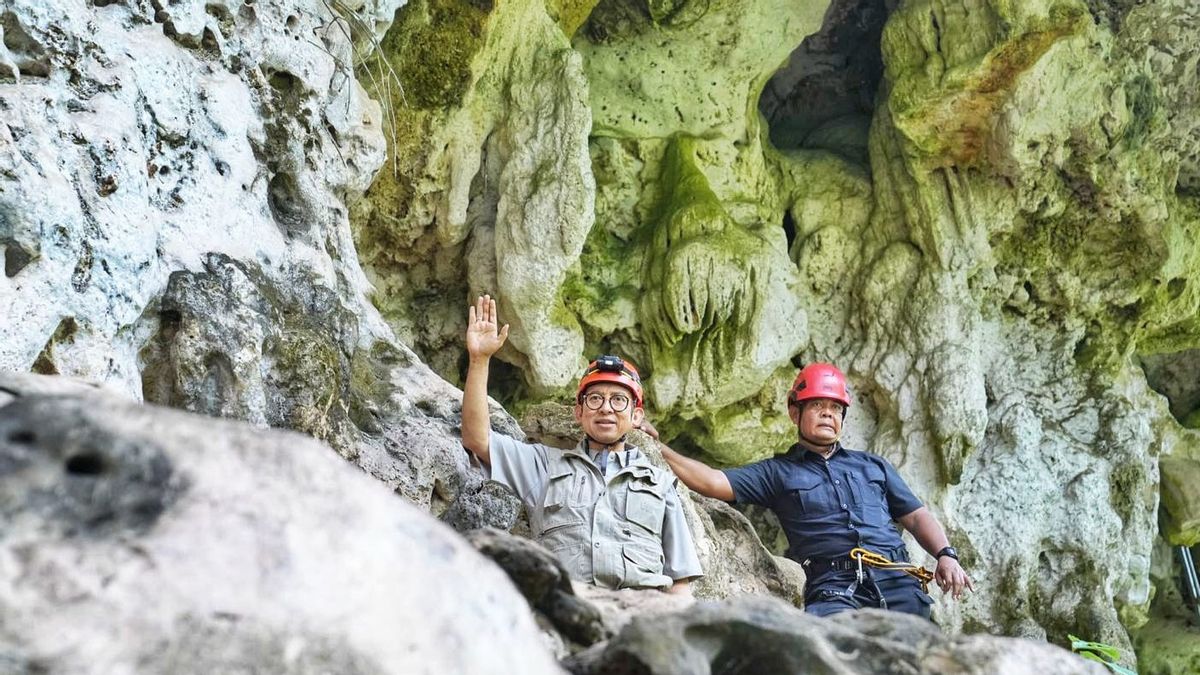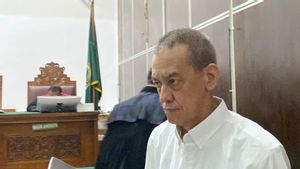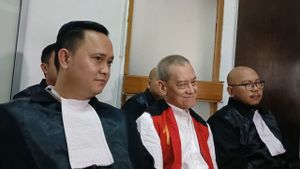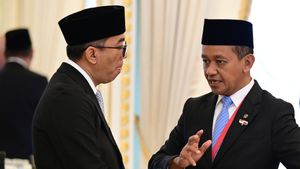JAKARTA - The Minister of Culture of the Republic of Indonesia, Fadli Zon, inaugurated the Leang-Leang Archological Park and the Prehistoric Image Information Center in the Maros-Pangkep karst area, South Sulawesi. This inauguration is a symbol of the Ministry of Culture's commitment to preserving cultural heritage, as well as affirming the position of the archipelago as the center of the oldest civilization in the world.
In his remarks, Fadli emphasized that the Leang-Leang area contains evidence of traces of ancient human creativity from the archipelago. "The painting of the cave, which is between 35,000 and 51,200 years old, is not just an ordinary scratch, but a reflection of the imagination and creativity of ancient humans. This site reminds us that Nusantara is a natural laboratory for human evolution," he said.
The first discovery in Leang-Leang was recorded in 1905 by Fritz and Paul Sarasin, a Swiss naturalist, followed by HR van Heekeren's research in 1950. prehistoric painting in Leang-Leang confirmed the region as a witness to the long journey of human civilization. "These findings break the dominance of the theory of Out of Africa by showing that ancient humans not only developed in Africa, but also achieved significant progress in the archipelago," said Fadli.
The Minister of Culture also visited caves with the oldest prehistoric images in the world; including Leang Pettakere, Leang Jarie with pictures of handprints aged 39,500 years, and Leang Karampuang with the oldest narrative painting in the world aged 51,200 years.
On the sidelines of his inauguration and visit to the archaeological area of Leang-Leang, the Minister of Culture also discussed community-based cultural heritage conservation initiatives. This dialogue brings together various stakeholders, including the community of cultural conservation and academics, to strengthen collaboration in supporting UNESCO's recognition of the Karst Maros-Pangkep area as a World Heritage List.
"Leang-Leang has universal values comparable to the Pompeii Archeological Park in Italy, Petra in Jordan, and the Colosseum in Rome. This recognition will strengthen the narrative that a great civilization was not only born in Europe, but also has strong roots in the archipelago. We must reintroduce our identity as one of the oldest civilizations ensuring the world of understanding that Indonesia is home to a human early civilization. One of them is through the oldest rock art that contains the story of human travel since tens of thousands of years ago," he stressed.
Fadli emphasized the importance of the role of local communities in preserving cultural heritage. "We need active community and community involvement, as the spearhead, the first guards of these valuable sites," he said.
SEE ALSO:
As part of the development of this region, the Leang-Leang Archaeological Park is designed to be a center for education and conservation. Various facilities, such as the Historical Image Information Center, serve as an interactive and open means of learning for the wider community, relating science to direct experiences. Fadli Zon added that this park should be a leading cultural tourist destination in Indonesia, even the world.
"This inauguration confirms Indonesia's great vision in preserving the narrative of world history, the role of the archipelago as the starting point for human evolution and expression of human culture. Leang-Leang is a symbol of the greatness of Indonesian civilization. Through the preservation and wise utilization, we make this legacy a bridge between the past and the future of the nation," concluded Fadli.
The English, Chinese, Japanese, Arabic, and French versions are automatically generated by the AI. So there may still be inaccuracies in translating, please always see Indonesian as our main language. (system supported by DigitalSiber.id)
















